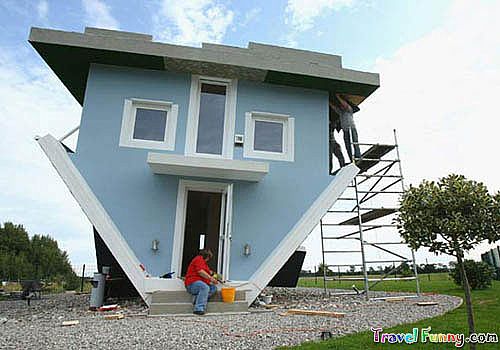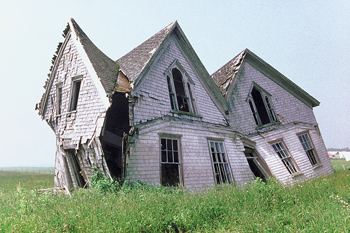
BLOG
5 Things You Should Know Before You Flip A Property
Money is made at the buy, not the sell of your flip. When flipping a house your money is made at the purchase not at the sell of the house. So, many times people buy a house with the intentions of making a huge profit only to find out that they could not make any money after all the renovations because the purchased price of the house was to high.
1. Money is made at the buy, not the sell of your flip. When flipping a house your money is made at the purchase not at the sell of the house. So, many times people buy a house with the intentions of making a huge profit only to find out that they could not make any money after all the renovations because the purchased price of the house was to high. When you purchase your property you need to be sure that you buy the house with enough money to make renovations, have carrying cost, and add about 5 $6,000. Now, cost is at $147,000, and that is if everything goes as planned. Profit is under 10,000 dollars. The mistake was made at the purchase at the home, not the sell.
2. Get an inspection on the home - Get a complete inspection done on your property. By, spending a few hundred dollars on this expense you can save thousands in problems that you cannot see. Foundation, Pest, Wood Rot, Etc... By, getting a full inspection you can rest assured that you know every thing that is wrong with the property before its to late. In the contact for the house you need to make sure that you have 7 days to have a inspection preformed, and if the inspection finds problems that are going to cost more money that you are willing to spend you can get out of the contract with no penalties.
3. Don't do the work yourself: - Get a contractor or several sub-contractors and have the work done quickly. You need to have you house flipped ASAP, so that you can get it on the market and get it sold. When I started flipping my brother and me did a house together, and we did all the construction. I had a construction background and figured it would save thousands, but it took us over 4 months to get the work done that a contractor could have had the work done in a month. But, we trying to save money on our flip did all the work on our time off and after work, and it just took to long. On our 2'nd flip we used contractors for almost everything and had the house completely flipped with a new roof, new air conditioning, new hardwood, and much more in only 3 weeks. We did not have to spend all our time working on the property and were able to spend that time looking for the next deal. This is how you get rich in real estate.
4. Place the property 1 to 2 percent below market value: If you are wanting to flip real estate and make money the object is to buy and sell the property as quickly as possible, so that you can move on to the next house. If you purchase a house and try to sell it at top dollar to make and extra couple of thousand dollars on your flip, and end up holding it for 6 months you are loosing money. Get the house on the market at a price that is going to blow the competition away, and you will sell it no matter what the market conditions. On our second house the market for selling house went down do to the housing market as a whole, and the tightening of the loans across America. We were told that you could not sell a property in this market, but we went ahead anyway and flipped our house. After 3 weeks on the market we had 3 people wanting to buy the house. Why, because we offered it at such a great deal that people wanted to jump on it. That is what you have to do especially if the market is slow.
5. Use a real estate agent - Do not try to sell you house on your own. Harness the power of a real estate agent and the power of the MLS system. When you do a FSBO you are depending on people driving by your house and seeing you sign, with a real estate agent you have someone actively marketing you house to get it sold. Once again this will free up more time for you to look for more great deals. If you want to help the process I have found that craigslist and listing you house in google adwords help to, but use these tools with the help of a agent such as Laura Key to make sure I have all my bases covered.
I hope this article has been helpful with the basics needs of flipping a house. If you will study and learn you will make money. But, do your homework before you purchase a house, and make sure that you can pull a profit on your deal. Then, make it happen! I am a Investor Friendly Agent, let's get you some deals! Laura Key 310.866.8422
Laura Key on CBS News
How to Assess the Real Cost of a Fixer-Upper House
When you buy a fixer-upper house, you can save a ton of money, or get yourself in a financial fix. People see shows on television and think it's easy to purchase a home that needs fixing. Know what you are getting into before you put the money down on the table! Call me with your questions Laura Key 310.866.8422
1. Decide what you can do yourself
TV remodeling shows make home improvement work look like a snap. In the real world, attempting a difficult remodeling job that you don’t know how to do will take longer than you think and can lead to less-than-professional results that won’t increase the value of your fixer-upper house.
- Do you really have the skills to do it? Some tasks, like stripping wallpaper and painting, are relatively easy. Others, like electrical work, can be dangerous when done by amateurs.
- Do you really have the time and desire to do it? Can you take time off work to renovate your fixer-upper house? If not, will you be stressed out by living in a work zone for months while you complete projects on the weekends?
2. Price the cost of repairs and remodeling before you make an offer
- Get your contractor into the house to do a walk-through, so he can give you a written cost estimate on the tasks he’s going to do.
- If you’re doing the work yourself, price the supplies.
- Either way, tack on 10% to 20% to cover unforeseen problems that often arise with a fixer-upper house.
3. Check permit costs
- Ask local officials if the work you’re going to do requires a permit and how much that permit costs. Doing work without a permit may save money, but it'll cause problems when you resell your home.
- Decide if you want to get the permits yourself or have the contractor arrange for them. Getting permits can be time-consuming and frustrating. Inspectors may force you to do additional work, or change the way you want to do a project, before they give you the permit.
- Factor the time and aggravation of permits into your plans.
4. Doublecheck pricing on structural work
If your fixer-upper home needs major structural work, hire a structural engineer for $500 to $700 to inspect the home before you put in an offer so you can be confident you’ve uncovered and conservatively budgeted for the full extent of the problems.
Get written estimates for repairs before you commit to buying a home with structural issues.
Don't purchase a home that needs major structural work unless:
- You’re getting it at a steep discount
- You’re sure you’ve uncovered the extent of the problem
- You know the problem can be fixed
- You have a binding written estimate for the repairs
5. Check the cost of financing
Be sure you have enough money for a downpayment, closing costs, and repairs without draining your savings.
If you’re planning to fund the repairs with a home equity or home improvement loan:
- Get yourself pre-approved for both loans before you make an offer.
- Make the deal contingent on getting both the purchase money loan and the renovation money loan, so you’re not forced to close the sale when you have no loan to fix the house.
- Consider the Federal Housing Administration’s Section 203(k) program, which is designed to help home owners who are purchasing or refinancing a home that needs rehabilitation. The program wraps the purchase/refinance and rehabilitation costs into a single mortgage. To qualify for the loan, the total value of the property must fall within the FHA mortgage limit for your area, as with other FHA loans. A streamlined 203(k) program provides an additional amount for rehabilitation, up to $35,000, on top of an existing mortgage. It’s a simpler process than obtaining the standard 203(k).
6. Calculate your fair purchase offer
Take the fair market value of the property (what it would be worth if it were in good condition and remodeled to current tastes) and subtract the upgrade and repair costs.
For example: Your target fixer-upper house has a 1960s kitchen, metallic wallpaper, shag carpet, and high levels of radon in the basement.
Your comparison house, in the same subdivision, sold last month for $200,000. That house had a newer kitchen, no wallpaper, was recently recarpeted, and has a radon mitigation system in its basement.
The cost to remodel the kitchen, remove the wallpaper, carpet the house, and put in a radon mitigation system is $40,000. Your bid for the house should be $160,000.
Ask your real estate agent if it’s a good idea to share your cost estimates with the sellers, to prove your offer is fair.
7. Include inspection contingencies in your offer
Don’t rely on your friends or your contractor to eyeball your fixer-upper house. Hire pros to do common inspections like:
- Home inspection. This is key in a fixer-upper assessment. The home inspector will uncover hidden issues in need of replacement or repair. You may know you want to replace those 1970s kitchen cabinets, but the home inspector has a meter that will detect the water leak behind them.
- Radon, mold, lead-based paint
- Septic and well
- Pest
Most home inspection contingencies let you go back to the sellers and ask them to do the repairs, or give you cash at closing to pay for the repairs. The seller can also opt to simply back out of the deal, as can you, if the inspection turns up something you don’t want to deal with.
If that happens, this isn’t the right fixer-upper house for you. Go back to the top of this list and start again.
Source: www.houselogic.com - G.M. Filisko is an attorney and award-winning writer whose parents bought and renovated a fixer-upper when she was a teen. A regular contributor to many national publications including Bankrate.com, REALTOR® Magazine, and the American Bar Association Journal, she specializes in real estate, business, personal finance, and legal topics.

